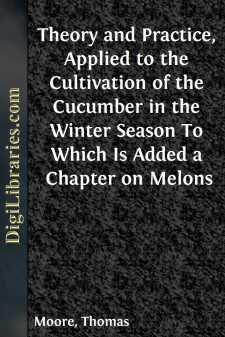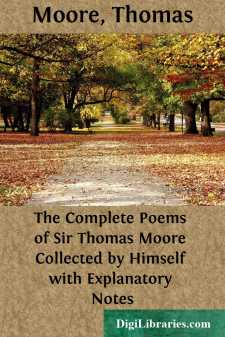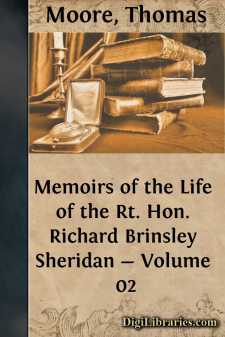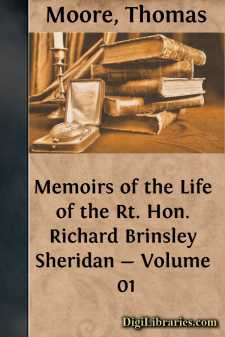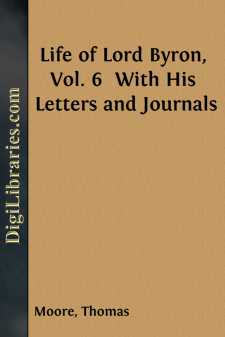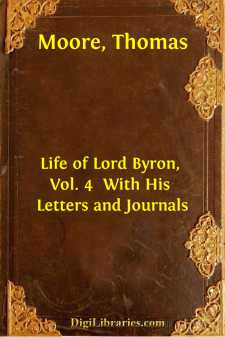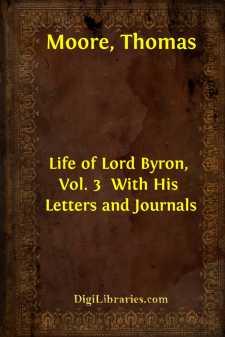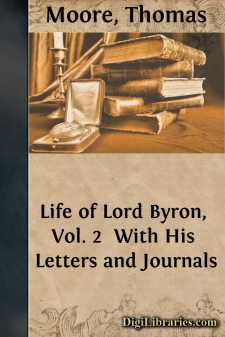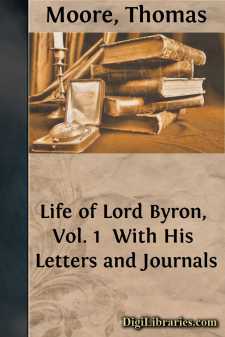Categories
- Antiques & Collectibles 13
- Architecture 36
- Art 48
- Bibles 22
- Biography & Autobiography 813
- Body, Mind & Spirit 142
- Business & Economics 28
- Children's Books 15
- Children's Fiction 12
- Computers 4
- Cooking 94
- Crafts & Hobbies 4
- Drama 346
- Education 46
- Family & Relationships 57
- Fiction 11828
- Games 19
- Gardening 17
- Health & Fitness 34
- History 1377
- House & Home 1
- Humor 147
- Juvenile Fiction 1873
- Juvenile Nonfiction 202
- Language Arts & Disciplines 88
- Law 16
- Literary Collections 686
- Literary Criticism 179
- Mathematics 13
- Medical 41
- Music 40
- Nature 179
- Non-Classifiable 1768
- Performing Arts 7
- Periodicals 1453
- Philosophy 64
- Photography 2
- Poetry 896
- Political Science 203
- Psychology 42
- Reference 154
- Religion 513
- Science 126
- Self-Help 84
- Social Science 81
- Sports & Recreation 34
- Study Aids 3
- Technology & Engineering 59
- Transportation 23
- Travel 463
- True Crime 29
Thomas Moore
Thomas Moore (1779–1852) was an Irish poet, singer, songwriter, and entertainer, best known for his Irish Melodies, which include famous songs like "The Last Rose of Summer" and "The Minstrel Boy." He was also a close friend of Lord Byron and served as his biographer, though his work was controversial for burning Byron's memoirs at the request of Byron's family. Moore's poetry and songs celebrated Irish culture and nationalist sentiments, making him a beloved figure in Irish literature and music.
Author's Books:
Sort by:
by:
Thomas Moore
Chap. I. INTRODUCTORY REMARKS. The Cucumber, Cucumis sativa, is supposed to be a native of the East Indies; but like many other of our culinary plants, the real stations which it naturally has occupied, are involved in obscurity: in habit it is a trailing herb, with thick fleshy stems, broadly palmate leaves, and yellow axillary monæcious flowers. In the natural arrangement of the vegetable kingdom,...
more...
by:
Thomas Moore
THOMAS MOORE Thomas Moore was born in Dublin on the 28th of May 1780. Both his parents were Roman-Catholics; and he was, as a matter of course, brought up in the same religion, and adhered to it—not perhaps with any extreme zeal—throughout his life. His father was a decent tradesman, a grocer and spirit-retailer—or "spirit-grocer," as the business is termed in Ireland. Thomas received his...
more...
by:
Thomas Moore
CHAPTER I. IMPEACHMENT OF MR. HASTINGS. The motion of Mr. Burke on the 10th of May, 1787, "That Warren Hastings, Esq., be impeached," having been carried without a division, Mr. Sheridan was appointed one of the Managers, "to make good the Articles" of the Impeachment, and, on the 3d of June in the following year, brought forward the same Charge in Westminster Hall which he had already...
more...
by:
Thomas Moore
CHAPTER I. BIRTH AND EDUCATION OF MR. SHERIDAN.—HIS FIRST ATTEMPTS IN LITERATURE. Richard Brinsley [Footnote: He was christened also by the name of Butler, after the Earl of Lanesborough.] Sheridan was born in the month of September, 1751, at No. 12, Dorset Street, Dublin, and baptized in St. Mary's Church, as appears by the register of the parish, on the fourth of the following month. His...
more...
by:
Thomas Moore
LETTER 508. TO MR. MOORE. "Genoa, February 20. 1823. "My Dear Tom, "I must again refer you to those two letters addressed to you at Passy before I read your speech in Galignani, &c., and which you do not seem to have received.[1] [Footnote 1: I was never lucky enough to recover these two letters, though frequent enquiries were made about them at the French post-office.] "Of Hunt...
more...
by:
Thomas Moore
LETTER 272. TO MR. MURRAY. "Venice, April 9. 1817. "Your letters of the 18th and 20th are arrived. In my own I have given you the rise, progress, decline, and fall, of my recent malady. It is gone to the devil: I won't pay him so bad a compliment as to say it came from him;—he is too much of a gentleman. It was nothing but a slow fever, which quickened its pace towards the end of its...
more...
by:
Thomas Moore
JOURNAL, 1814. "February 18. "Better than a month since I last journalised:—most of it out of London and at Notts., but a busy one and a pleasant, at least three weeks of it. On my return, I find all the newspapers in hysterics, and town in an uproar, on the avowal and republication of two stanzas on Princess Charlotte's weeping at Regency's speech to Lauderdale in 1812. They are...
more...
by:
Thomas Moore
NOTICES LIFE OF LORD BYRON. Having landed the young pilgrim once more in England, it may be worth while, before we accompany him into the scenes that awaited him at home, to consider how far the general character of his mind and disposition may have been affected by the course of travel and adventure, in which he had been, for the last two years, engaged. A life less savouring of poetry and romance...
more...
by:
Thomas Moore
NOTICES OF THE LIFE OF LORD BYRON. It has been said of Lord Byron, "that he was prouder of being a descendant of those Byrons of Normandy, who accompanied William the Conqueror into England, than of having been the author of Childe Harold and Manfred." This remark is not altogether unfounded in truth. In the character of the noble poet, the pride of ancestry was undoubtedly one of the most...
more...


